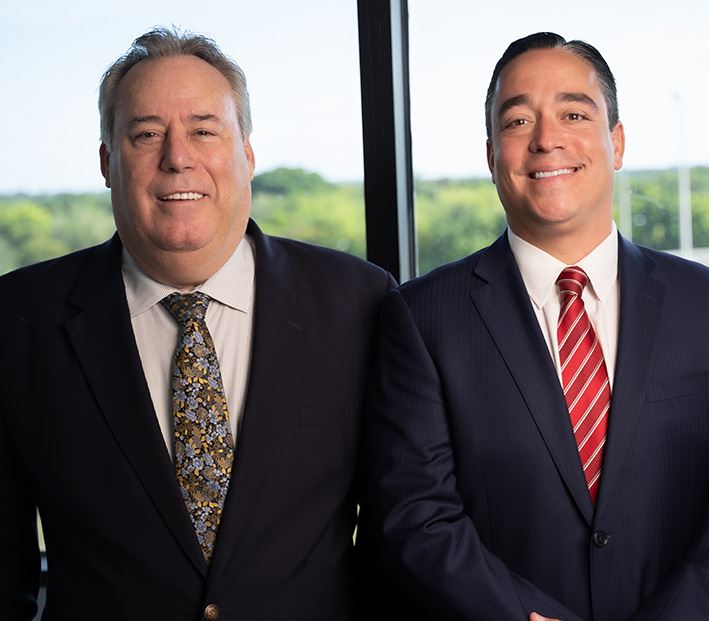
South Florida Foreclosure Lawyers
Serving Miami-Dade, Broward, West Palm Beach, and Monroe Counties
In today’s economy, more homeowners struggle with making ends meet, including keeping up with mortgage payments. With inflation impacting monthly expenses and rising interest rates hiking adjustable mortgages nationwide, foreclosures are climbing, especially in states like Florida.
If you are a Florida homeowner who has fallen behind on your mortgage or have already been notified of foreclosure procedures, you are likely highly stressed about the threat of losing your home. Equity in your home is commonly your most significant investment, and its loss can spell financial ruin.
At Cooke Carbonell LLP, we understand the anxiety and confusion you may face under these circumstances. Our experienced legal team offers foreclosure representation services to guide you through potential solutions to your foreclosure crisis, providing the clarity and support you need.
Schedule a free case review with a Miami foreclosure attorney at our firm to discuss your options. Call (786) 891-6700 or connect with us online to get started.
The Foreclosure Process in Florida
Florida follows a judicial foreclosure process, which means your lender must go through the court system to foreclose on your home.
The process begins when you fall behind on your mortgage payments. After missing a few payments, your lender will typically contact you to discuss the situation. If you continue to miss payments, your lender will eventually issue a formal notice of default. This is usually done after 90 to 120 days of missed payments.
The next step involves your lender filing a lawsuit in the county where the property is located and serving you with a summons and complaint for foreclosure. You typically have 20 days to respond. If you do not respond or fail to pay the amount due, your lender can ask the court for a summary judgment. This is a judgment in favor of your lender when you fail to respond with a valid defense.
If you contest the foreclosure, the case will go to trial. If the court rules in favor of the lender at trial, it will enter a final foreclosure judgment, including the total amount owed plus any legal fees and costs. The court clerk will then schedule a foreclosure auction, typically 20 to 35 days after the judgment. The property is sold to the highest bidder.
If no one bids at the auction, the property returns to the lender. If there is a winning bidder, they receive a certificate of title about 10 days after the sale. In Florida, you have a right to redeem the property any time before the later of (a) the filing of the certificate of sale by the clerk of court or (b) the time specified in the foreclosure judgment.
If you do not redeem or leave the property after it's sold, the new owner can file an eviction lawsuit.

Your Options for Fighting Foreclosure
Fortunately, homeowners have several options at their disposal to fight foreclosure:
- Loan Modification: This is a change made to your lender’s terms of an existing loan. It may involve a reduction in the interest rate, an extension of the length of time for repayment, a different type of loan, or any combination of the three. A loan modification aims to make your payments more affordable.
- Forbearance: This is a temporary postponement or reduction of your mortgage payments. Your lender usually grants it during times of temporary financial hardship. You'll have to repay the missed or reduced payments in the future.
- Repayment Agreement: This plan lets you catch up on missed payments. You will pay an extra amount above your monthly mortgage until you’ve repaid your debts.
- Short Sale: A short sale is when you sell your home for less than the remaining balance on your mortgage. Your mortgage lender agrees to accept the proceeds from the sale even though it didn't cover the total debt.
- Deed in Lieu of Foreclosure: This is when you voluntarily transfer the ownership of your property to your lender to avoid foreclosure proceedings. Essentially, you're giving back your home to the lender.
- Special Loss Mitigation Option: If your loan is backed by Fannie Mae, Freddie Mac, or the government (like an FHA-insured loan), you might qualify for a special loss mitigation option. These are programs designed to help homeowners avoid foreclosure and may include options like loan modifications, repayment plans, forbearance, or even refinancing. The exact programs available will depend on who owns or backs your loan.
- Bankruptcy: Although a last resort, filing for bankruptcy can temporarily halt foreclosure.

Our team will handle your case no matter how simple or complex it is.
The Role of a Foreclosure Representative
At Cooke Carbonell LLP, our foreclosure representatives can play an invaluable role in navigating these options. We can help you understand your rights and responsibilities as a homeowner, ensuring you make informed decisions. Furthermore, our team has the skills to negotiate with lenders or argue your case in court, where appropriate.
We will start by reviewing your financial situation, evaluating your options, and developing a strategic plan to fight foreclosure. We aim to protect your rights, preserve your home, and alleviate the stress associated with this challenging process.
Call us at (786) 891-6700 to learn how we can help today.

Client Reviews
We approach every case with a focus on integrity, advocacy, and understanding. See for yourself what our clients have to say about working with us.
-
- Brian E.
Confident and secure with Cooke Carbonell handling our family's legal matters
-
“I am very grateful to Mr. Carbonell and his staff for all of their hard work and dedication to my case.”- Daniel R.
-
“They really do have their clients best interest at heart.”- Cheyenne N.
-
“I felt like an actual client and not just a number !! HIGHLY RECOMMEND!!!”- Elisa P.
-
“The team here is professional, responsive, and effective.”- Adam G.
-
“I am very grateful to Mr. Carbonell and his staff for all of their hard work and dedication to my case.”- Adam R.